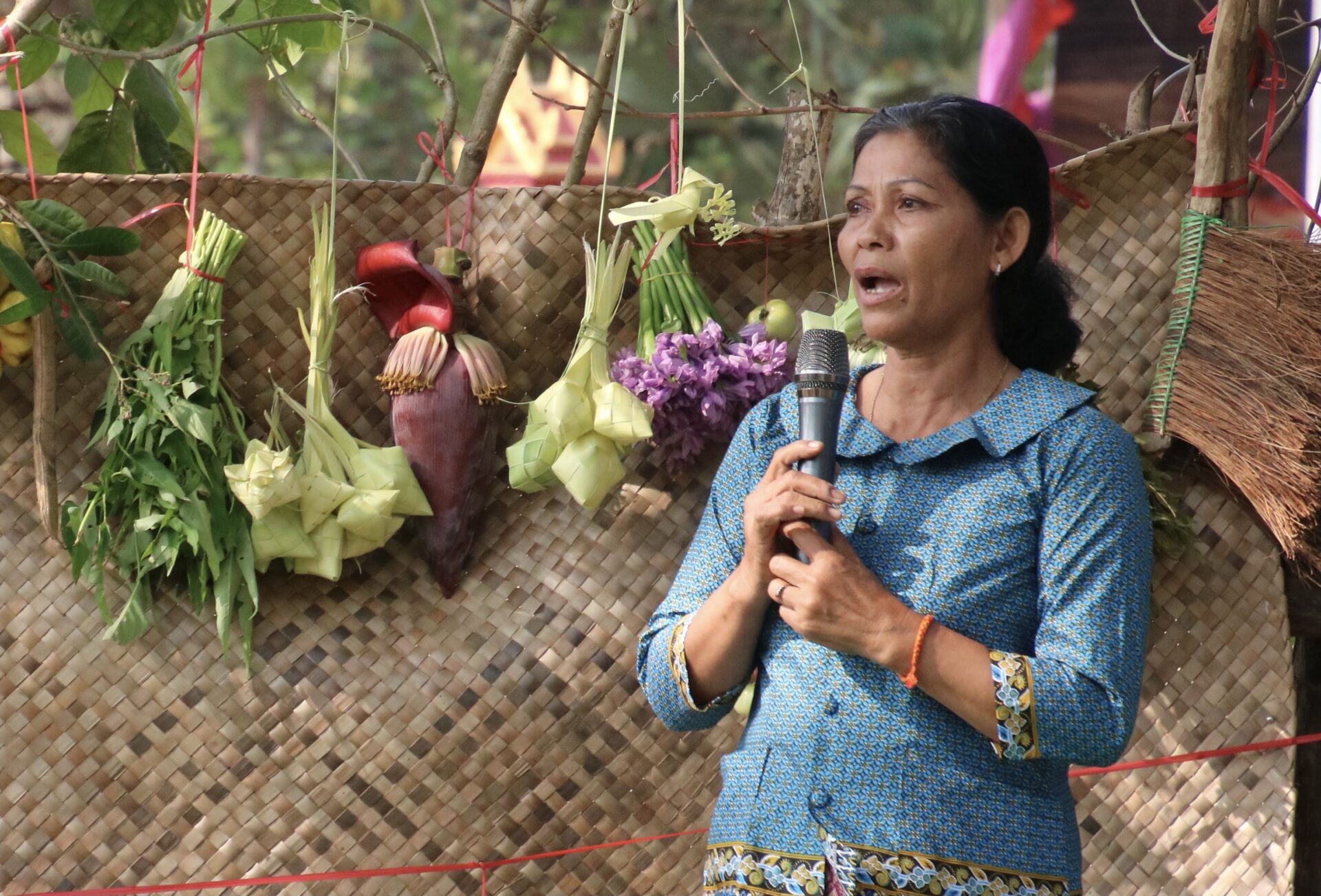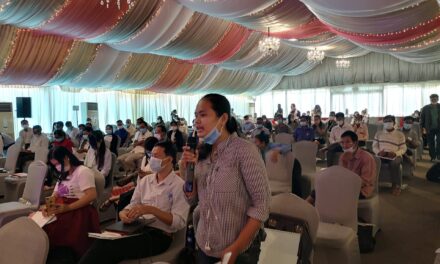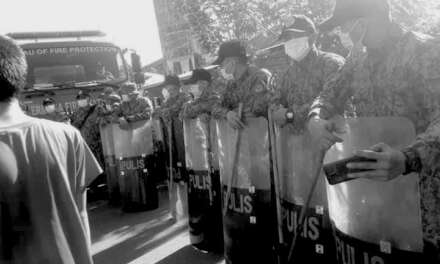
Ms. Keo Vannak from Lor Peang village, Taches commune, Kampong Tralach district, Kampong Chhnang Province.
In my community, International Women’s Day has become a powerful tool to raise awareness of women’s rights and values. Women who previously did not dare to express their fears or advocate for their rights have found the courage to speak out. As someone who has personally faced discrimination and injustice, I have seen the impact of this day firsthand.
I was accused by village authorities of being part of the opposition party and faced discrimination from some members of the community because I protested over a land dispute with a company. However, I believe that it is my right to reclaim my land, and I stand by my actions.
Domestic violence is a significant problem in our community, with women often shouldering the burden of supporting their families while dealing with abusive husbands. I have personally witnessed the devastating impact of domestic violence on families and have tried to guide and mediate in cases of family conflicts.
For women in our community, access to land is a critical issue. After my family lost our land, my husband and children migrated, leaving me behind to sew palm leaves and catch snails, crabs, and earthworms for sale. Our community depends on nearby natural lakes for survival, but outsiders are now digging these lakes deeper, making it difficult to rely on them as a source of sustenance.
Despite our efforts to petition the commune office to save the lake and request support from the government to value and empower women and help families regain their land for farming, we have been met with apathy and inaction. As women, we continue to unite and speak out, but we need the support of our community and government to affect real change.

Ms. Nau Yong, 63 year old from Tang Trapeang Village, Pech Changvar Commune, Baribour District, Kampong Chhnang Province, Cambodia.
I attended the International Women’s Rights Day celebration and felt empowered to learn about the equal rights and opportunities available to women. It was a great program, and I would love to see more events like this in the future to raise awareness about women’s issues and encourage us to speak out.
Nowadays, life is much harder than before. Women are still expected to do a lot of work, especially in the kitchen, but I have taken on a more supportive role for my children and grandchildren. I don’t have a paying job, and my daughter works in a garment factory while my son-in-law does construction work. Sometimes he has a job, and sometimes he doesn’t.
In the past, we could rely on the forest to provide food, such as potatoes, resin, rattan, and vegetables. If we had cattle, we could let them graze in the fields after harvest season. However, now there are no more forests, and the land has been cleared.
There are many problems in our community, but I am hesitant to speak up because I fear being blamed by the authorities.

Ms. Hong Yai, 60 year old from Tang Trapeang Village, Pech Changvar Commune, Baribour District, Kampong Chhnang Province, Cambodia.
In the past, when our children were young, we could venture into the forest to gather resin for sale or find vegetables to cook. We believed that even when we got old and couldn’t do much, we could still rely on the forest for sustenance. However, today, the forest no longer exists – not even on the mountaintops. Even the trees in our paddy fields are being cut down gradually.
We used to live frugally, catching fish, hunting for fish and non-timber forest products, digging wild potatoes, weaving mats for drying rice and for sleep, making baskets, and cutting rattan for sale. But all the forests have been cleared, and the mountains where we used to go for non-timber forest products have been put under conservation.
Nowadays, we spend most of our time at home raising pigs, chickens, or ducks to earn money for our daily expenses. When we fall sick, we struggle to find work, unlike the younger generation who can work in garment factories. It’s challenging to speak up about our problems as we’re old and unable to take time to go to the pagoda. The only time we go out is to dig and search for crabs to eat.









